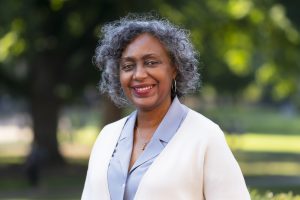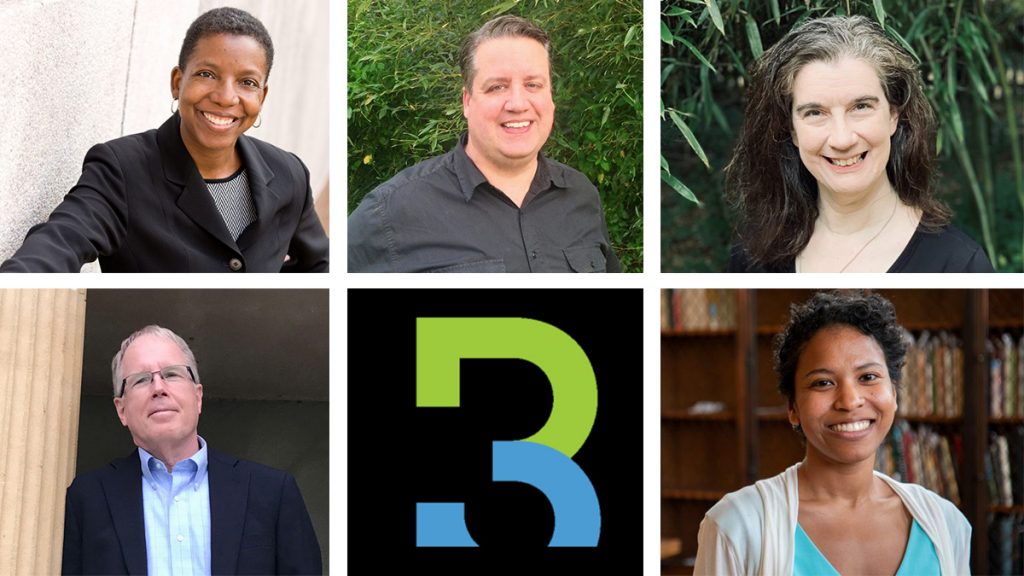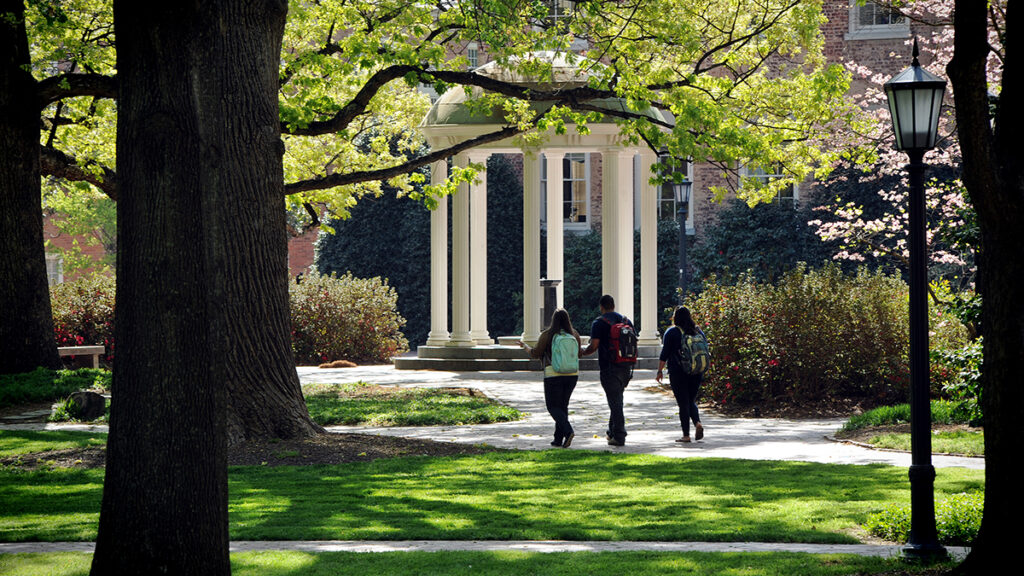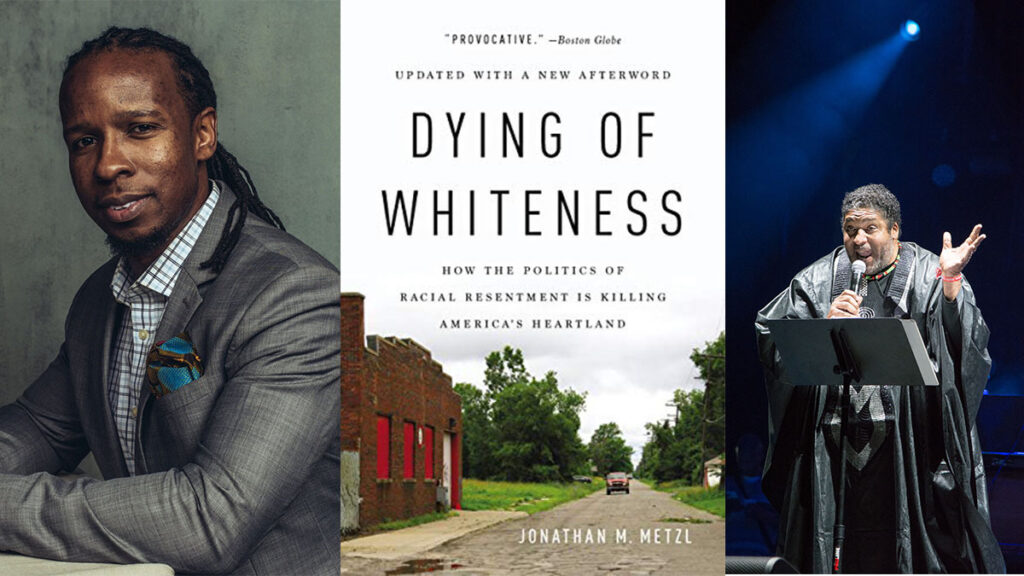Build Our Community Together
Build Our Community Together
Environmental Scan
Throughout history, events and circumstances both local and worldwide have sparked important discussions about the continued legacies of discrimination, bias and inequity. Over the years, our campus community has struggled with the realities of racism and prejudices in society. The University is committed to combatting structural racism and discrimination in society and we recognize our role in fostering a more inclusive environment on our campus and community.
All around us — across our campus, state, country and world — are causes and controversies, opportunities and obstacles, and potential and predicaments that require creative thinking, different perspectives and rigorous, respectful debate. The extraordinary events that we witnessed during the COVID-19 pandemic and the disturbing images and reports of racial and social injustices have brought to the forefront the fundamental challenges in our day-to-day life in the form of real and urgent concerns about accessibility, race, religion, sexual orientation, gender identity, culture, health inequities and political orientation. How well we meet these challenges and promises will hinge, above all else, on our ability as a community to understand, empathize, and work together with people of varied backgrounds and experiences.
Carolina is committed to creating and sustaining a diverse, equitable, and inclusive community of students, faculty and staff. Our differences are our strength. Our diversity enhances our educational programs, promotes the development of our students, advances innovative approaches to difficult challenges, creates vibrant work and learning environments and enables us to solve the world’s greatest problems. Our University community strives daily to put into practice what a significant and growing body of educational and organizational research has established: that diversity, equity and inclusion enhance accessibility and learning, and foster discovery and strengthen service, especially in communities where all individuals are valued for the unique combination of attributes that make them who they are.
We remain one Carolina community, connected even when we are apart physically. We all play an essential role in creating and nurturing a sense of belonging, connectedness and community for one another. This connection feeds our collective spirit and strengthens our physical, spiritual, emotional and mental well-being. We also all share responsibility for fostering a culture of equity and inclusivity, which requires leadership, integrity and social accountability. We are committed to identifying and changing policies, practices, and traditions that reinforce structural systemic racism and serve as barriers to diversity, equity and inclusion.
As the nation’s first public university, our mission is to “teach a diverse community of undergraduate, graduate and professional students to become the next generation of leaders.” Diversity, equity, and inclusion are integrally and inextricably connected to excellence in service to the people of North Carolina, the nation and beyond.
Strategic Objectives and Opportunities
Objective 1.1
Invest in policies, systems, and infrastructure that promote belonging, community and transparency throughout the University community.
Strategic Opportunities
- Redefine the role, strategy, and organization of the University Office for Diversity and Inclusion as a central unit that works across schools and units to systematically examine university policies, practices, and infrastructure to advance diversity, equity and inclusion on campus. Accomplishing this will enable us to develop a robust campus infrastructure that supports and enhances the diversity, equity and inclusion work occurring across campus.
- Engage the Carolina community to understand what constitutes a sense of belonging on campus and develop best practices for creating such an environment. Part of this critical work will include developing and delivering a series of campus and community seminars on topics such as having difficult conversations, anti-racism and anti-Semitism.
- Create a campus communications plan to manage how we connect university members to the diversity, equity, and inclusion research and initiatives happening across campus, specifically recognizing, promoting and amplifying the substantive work already occurring across disciplines.
- Promote and support the work of the Commission on History, Race and A Way Forward and the Commission on Campus Safety Commissionand Belonging, which are working to bring to light and teach the full history of the University by ethically engaging with the past, and to build a culture of trust by examining present–day campus safety and belonging efforts.
- Develop and launch a campus-wide shared learning instructional initiative, the Student Learning to Advance Truth and Equity, that focuses on history, race, reckoning and the American South. Further promote and invest in the continued development of the Southern Futures initiative, which is leveraging inter-disciplinary expertise on campus to reimagine the American South.
- Make strategic investments in campus centers that foster a sense of belonging and community and thereby create a safe, inclusive environment for UNC–Chapel Hill students, faculty and staff.
- Become skilled at digitizing inclusion by building high-impact and inclusive digital communities. Invest in opportunities that make campus connectivity work efficiently for all members of the community.
Objective 1.2
Enhance the educational benefits of diversity, equity, and inclusion through effective student recruitment, enrollment, retention and graduation.
Strategic Opportunities
- Continue to invest in current initiatives designed to support and promote underrepresented student recruitment, enrollment, retention, and success such as the Carolina College Advising Corps, Project Uplift, Uplift Plus, Summer Bridge, Carolina Firsts, the Carolina Covenant, Peer Mentoring, NC Renaissance and the Initiative for Minority Excellence.
- Systematically assess and advance current recruitment and retention initiatives’ effectiveness in creating a sense of belonging and connection and fostering equity in achievement across populations.
- Launch an Educational Benefits of Diversity website that communicates to the Carolina community and the public the university’s commitment to assessing the educational benefits of diversity as part of realizing Carolina’s mission.
- Continue to invest in and sustain the work of the Educational Benefits of Diversity Working Group. Develop and disseminate reports of findings from this group regarding ongoing assessment of admission and academic policies and practices, and the realization of the educational benefits of diversity for all students.
- Explore innovative approaches to admissions that foster excellence and help the University realize our commitment to the educational benefits of diversity, equity and inclusion.
Objective 1.3
Prioritize diversity, equity, and inclusion in teaching, research and service, and in hiring, evaluation, retention and promotion of under-represented faculty and staff.
Strategic Opportunities
- Establish the University Diversity, Equity & Inclusion Council, composed of chief diversity officers (or representatives charged with this work) from each of the respective schools, colleges and units to work strategically with the University’s Chief Diversity Officer, meeting monthly and sharing opportunities, challenges and successes.
- Systematically assess and evaluate the University’s equity and inclusion, anti-bias and inclusive teaching trainings. Enhance these programs using best practices and provide campus-wide education and training opportunities for students, faculty and staff.
- Develop contemporary instruments and establish metrics and benchmarks to annually track diversity, equity and inclusion efforts across schools and units.
- Foster a culture of accountability for university leaders, deans, department chairs, and managers through participation in diversity, equity, and inclusion training and delivery on school/unit diversity, equity and inclusion commitments.
- Invest in annual diversity, equity and inclusion training for senior leaders that provides a common framework and language that enables leadership to fully engage in this work.
- Develop and implement a senior leader accountability program that creates leadership accountability for building and sustaining a culture of diversity, equity and inclusion at Carolina.
- Develop, implement and measure new strategies to recruit and strengthen infrastructure to retain diverse faculty and staff.
- Institutionalize recommendations from UNC ADVANCE to develop and sustain leadership pathways and mentoring opportunities for women and underrepresented faculty who aspire to leadership roles at Carolina, with similar leadership pathways and mentoring opportunities for staff created as well.
- Evaluate and expand the University’s VITAE Program (Valuing Inclusion to Attain Excellence, formerly Targeted Hiring Program) and the Carolina Postdoctoral Program for Faculty Diversity, to support the recruitment, hiring and retention of diverse faculty.
Captain

Leah Cox
Vice Provost for Equity and Inclusion and Chief Diversity Officer
Leah Cox is the vice provost for equity and inclusion and chief diversity officer. She provides the leadership and vision for creating a more inclusive campus for students, faculty and staff, and works collaboratively with all members of the campus and surrounding community. She is a recognized leader and popular keynote speaker who has created innovative programs and initiatives led policy development and strategic planning efforts and has designed and led a variety of student success and DEI training programs. Her work has directly influenced recruitment and retention endeavors for academic institutions and businesses. She is a skilled trainer, mediator and certified coach who facilitates dialogue surrounding difficult issues and supports conflict resolution efforts.




